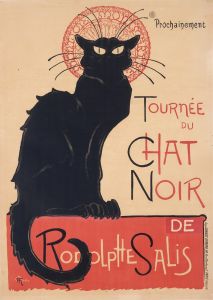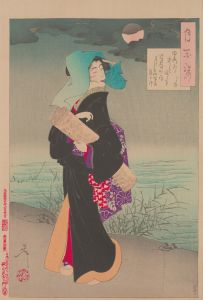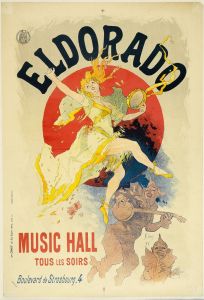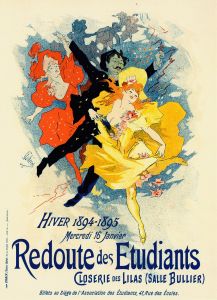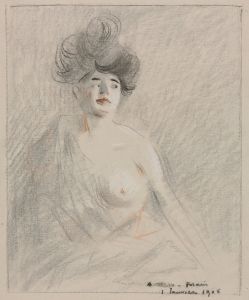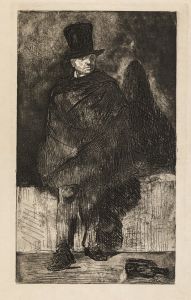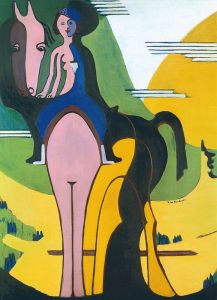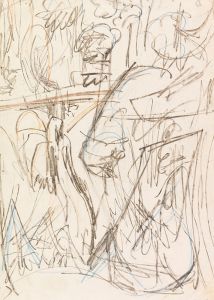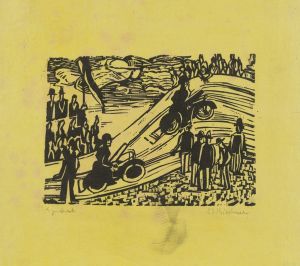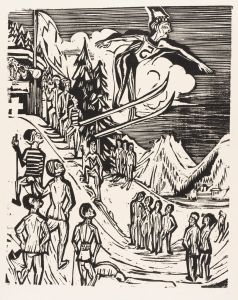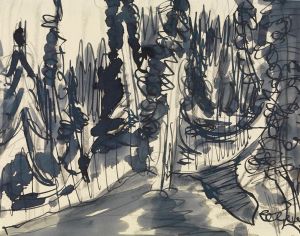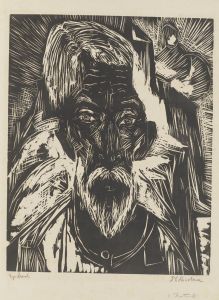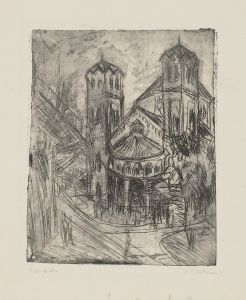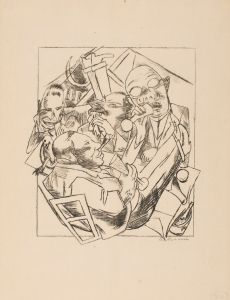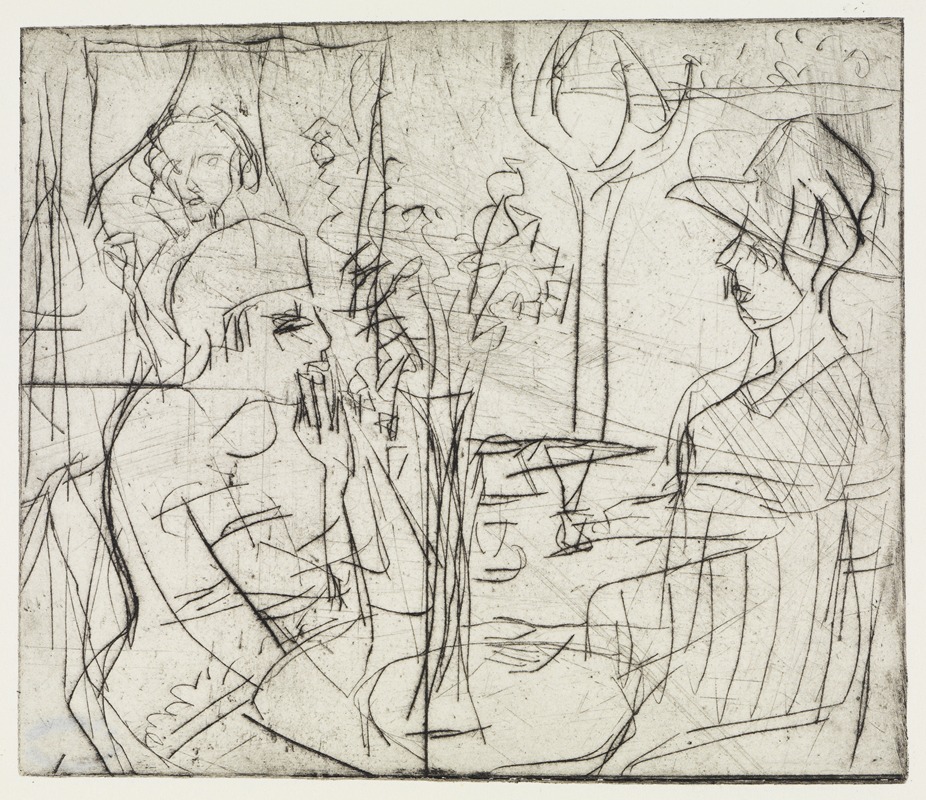
Im Cafe
A hand-painted replica of Ernst Ludwig Kirchner’s masterpiece Im Cafe, meticulously crafted by professional artists to capture the true essence of the original. Each piece is created with museum-quality canvas and rare mineral pigments, carefully painted by experienced artists with delicate brushstrokes and rich, layered colors to perfectly recreate the texture of the original artwork. Unlike machine-printed reproductions, this hand-painted version brings the painting to life, infused with the artist’s emotions and skill in every stroke. Whether for personal collection or home decoration, it instantly elevates the artistic atmosphere of any space.
Ernst Ludwig Kirchner's painting Im Café is a notable work by the German Expressionist artist, created in 1914. Kirchner was a founding member of the art movement Die Brücke (The Bridge), which sought to break away from traditional academic art and explore more modern, emotional, and expressive forms of representation. His works often depict urban life, human figures, and psychological tension, reflecting the rapid modernization and social changes of the early 20th century.
Im Café portrays a scene in a café, a common subject in Kirchner's oeuvre, as he was deeply interested in capturing the energy and atmosphere of modern urban environments. The painting features angular, elongated figures and bold, vibrant colors, hallmarks of Kirchner's style. These stylistic choices emphasize emotional intensity and a sense of unease, characteristic of Expressionism. The figures in the painting appear somewhat detached and introspective, reflecting the alienation and fragmentation often associated with modern city life.
The year 1914, when Im Café was created, was a significant period in Kirchner's career. It was just before the outbreak of World War I, a time when the artist was grappling with personal and societal anxieties. This tension is often evident in his works from this period, including Im Café. The painting exemplifies Kirchner's ability to convey complex emotions and the psychological undercurrents of his subjects through his distinctive use of form and color.
Kirchner's works, including Im Café, were later labeled as "degenerate art" by the Nazi regime in the 1930s, leading to the confiscation and destruction of many of his pieces. Despite this, his contributions to modern art have been widely recognized, and his works are now celebrated in major museums and collections worldwide.
Today, Im Café is considered an important example of Kirchner's exploration of modern life and his innovative approach to art. It reflects the broader themes of Expressionism, including the focus on individual experience, emotional depth, and the challenges of modernity. The painting remains a testament to Kirchner's artistic vision and his role in shaping the trajectory of 20th-century art.





